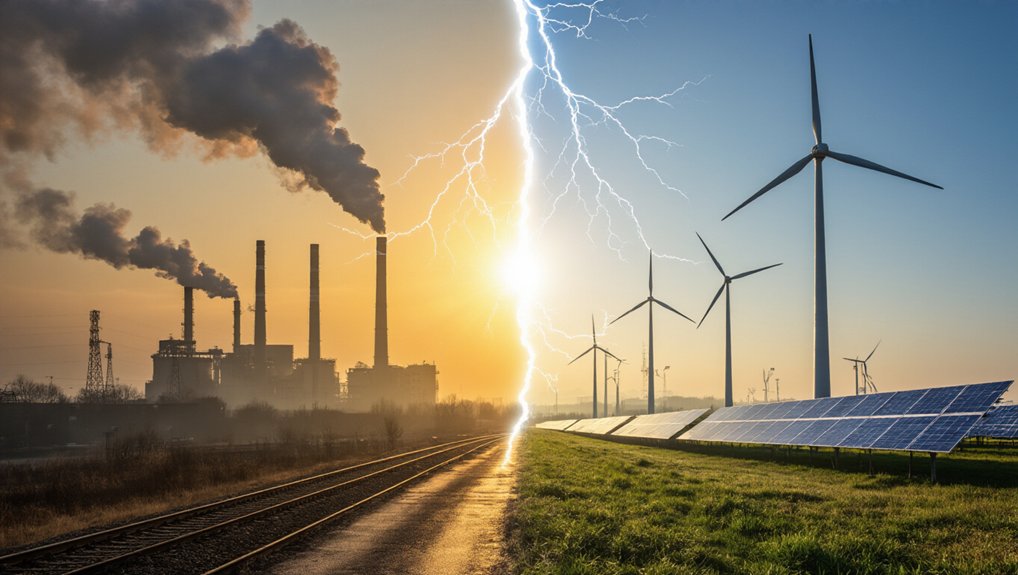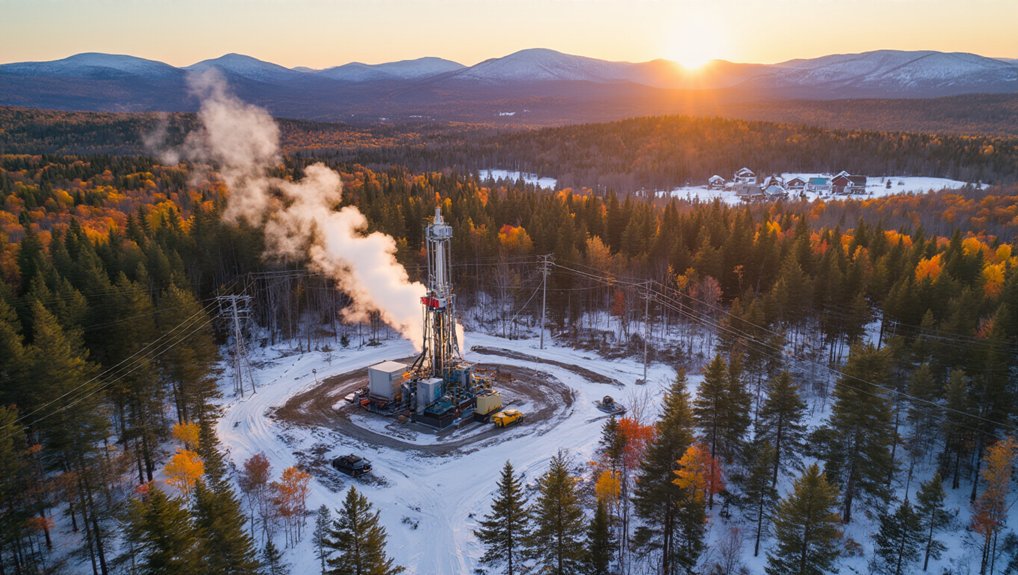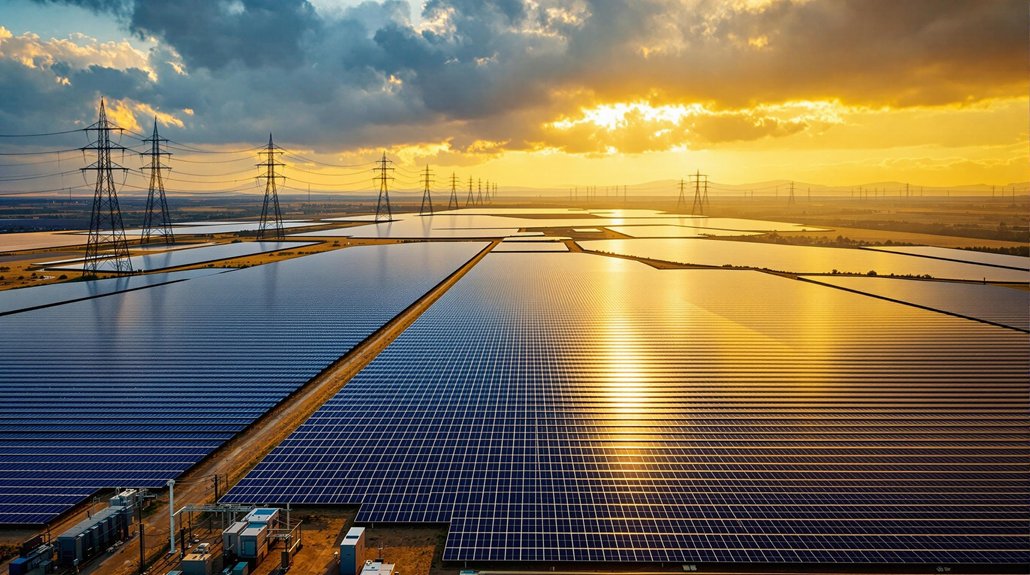Three stubborn myths about renewables keep circulating despite overwhelming evidence they’re nonsense. The “unreliable” wind and solar? They’re powering major grids at 50% capacity without blackouts. Those “toxic” solar panels? They’re sealed glass, safer than coal ash. Too expensive? Wind and solar are now the cheapest electricity sources in multiple markets. Facts don’t care about fossil fuel feelings, and the data keeps piling up against these zombie talking points.
Why do these myths about renewable energy keep popping up like weeds? Maybe it’s because some folks really miss the good old days of coal smoke. Or they just can’t handle change. Whatever the reason, these tired talking points about wind and solar power need to meet their maker: cold, hard facts.
The intermittency argument is particularly rich. Apparently, nobody told the critics that major grids across the U.S., Europe, and Australia are humming along just fine with renewable energy sometimes exceeding 50% of total generation. No apocalyptic blackouts. No return to the Stone Age. Just reliable power, thanks to battery storage, smart forecasting tools, and grid management that actually works. Germany’s grid achieves 0.25 hours of outages annually while generating nearly half its electricity from renewables. Shocking, right?
Then there’s the toxic waste hysteria. News flash: solar panels aren’t leaking mysterious green ooze into your drinking water. The materials are sealed in tempered glass, completely insoluble, and about as dangerous as your kitchen window. In fact, coal combustion byproducts contain higher toxins than anything you’ll find in a solar panel.
Wind turbines? They’re basically giant pinwheels that don’t emit anything except electricity. With technological advancements making them more efficient, wind power now contributes to 6% worldwide electricity generation and continues growing. Meanwhile, life cycle assessments show these technologies produce some of the lowest emissions around, even counting manufacturing and disposal.
The cost complaint is where things get really amusing. Wind and solar are now among the cheapest electricity sources in multiple markets. That’s not wishful thinking—it’s economics. Zero fuel costs tend to do that.
Bigger, better turbines and plummeting solar prices have made renewables competitive with, or cheaper than, fossil fuels in region after region. Coal executives probably aren’t sleeping well these nights.
As for health impacts, the science is clear: zilch. Multiple peer-reviewed studies found no link between wind turbines and health problems. “Wind turbine syndrome” belongs in the same category as Bigfoot sightings.
Solar panels just sit there, inert as rocks, harming absolutely nobody. The noise from wind turbines? About as loud as ocean waves.
These myths persist because fear sells better than facts. But reality has a funny way of winning in the end. Renewable energy isn’t perfect, but it’s reliable, clean, affordable, and safe. The truth explosion is coming, whether the myth-makers like it or not.
References
- https://e360.yale.edu/features/three-myths-about-renewable-energy-and-the-grid-debunked
- https://center4ee.org/debunking-solar-myths/
- https://reneweconomy.com.au/technology-denial-columbia-law-school-debunks-33-biggest-myths-about-solar-wind-and-evs/
- https://www.namastesolar.com/blog/myths-about-solar-debunked/
- https://www.landapp.com/post/6popularwindturbinemythsdebunked









